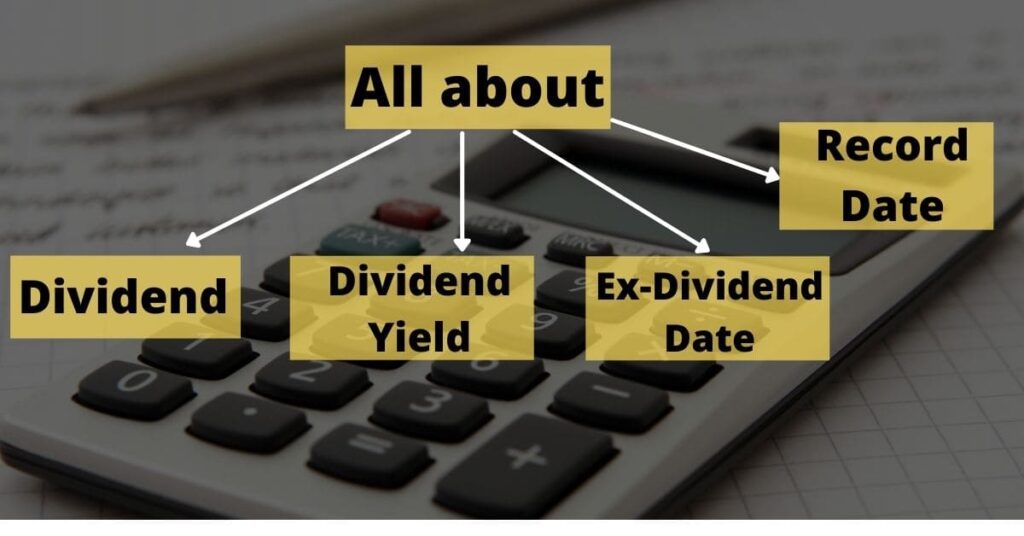
Before investing in stocks, Investors should research the financial statements or prospects of the company. For doing this, investors should use return on equity (ROE), debt to equity ratio, net profit margin, dividend yield, etc.
In todays’ article, we will discuss dividend-related topics like dividend, dividend yield, ex-dividend date, and record date.
Table of Contents
What is the dividend?
The dividend is a portion of profits distributed by the company to its shareholders and the remaining portion of profits reinvested into the business. When the company earns profit from the operation of the business, it distributes a dividend to its shareholders. The company may not distribute dividends to its shareholders where it incurs a loss in a particular financial year.
Exception:- Loss-making company may distribute dividends to its shareholders if it has a sufficient amount of surplus.
How to calculate dividend per share?
Dividend per share = Total dividend paid out in a year / Total no. of the outstanding shares
Example: Total dividend paid = Rs.120,000
Total no. of outstanding shares = 20,000 shares
Solution: Dividend per share: 120,000/20,000 = Rs. 6
What is the dividend yield?
The dividend yield is the financial ratio that measures the quantum of dividends paid to shareholders relative to the market price per share. If a company has a high dividend yield, it indicates the company pays a substantial part of the profit to its shareholders.
Dividend Yield (%) = Dividend Per Share / Market price Per Share
Example: Dividend Per Share = Rs.19
Market Price Per Share = Rs.336
Solution: Dividend Yield (%) = 19/336 = 5.65 %
What is the record date?
If you hold the shares on the record date, you will be eligible to get benefits such as the right shares, dividend, bonus shares, stock splits, etc.
What is the ex-dividend date?
Usually, a day before the record date is called the ex-dividend date. The ex-dividend date is a cut-off date to buy a stock. If you purchase stock on or after the cut-off date will not be eligible to receive a dividend.
Let’s understand this with an example:
Assume the record date for the dividend is Friday-
- The ex-dividend date will be Thursday. (one day before the record date)
- If you purchase stock on or before Wednesday will be eligible to receive a dividend.
- The stock is said to be cum-corporate action Upto Wednesday.
- The stock is said to be ex-corporate action after Wednesday.
- If you purchase stock at any time after Wednesday, you will not be eligible to receive a dividend.
